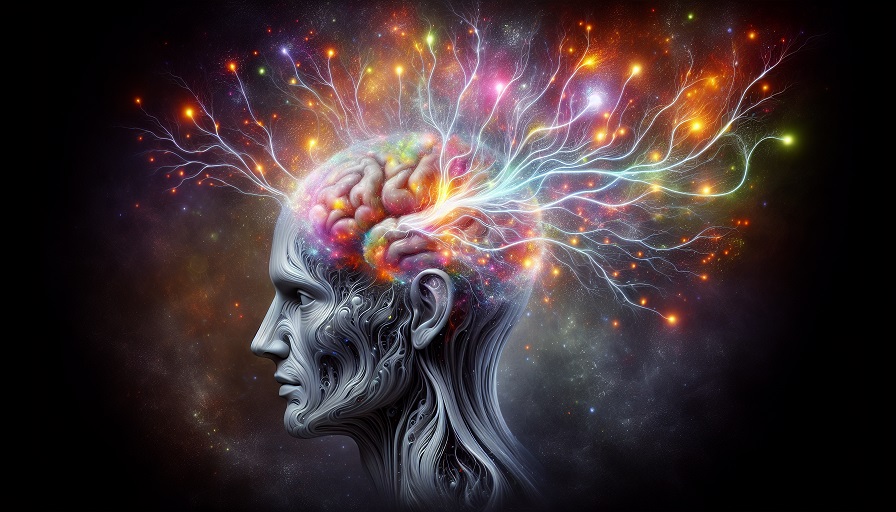
Let’s be honest – coffee is the unofficial fuel of modern life. It’s the morning ritual, the midday pick-me-up, the productivity crutch we lean on whenever our brains start to lag. We’ve built a culture around caffeine: witty mugs, artisanal brews, and memes that equate coffee with functionality. But here’s the uncomfortable truth no one wants to hear: coffee might be the very thing wrecking your focus.
Sure, caffeine gives you that short-term buzz. You feel sharper, faster, more awake. But it’s often a false clarity – a spike that’s followed by a crash, and over time, a dependence that erodes your brain’s natural ability to concentrate. You might think it’s helping. In reality, it could be working against you.
Contents
The Caffeine-Focus Illusion
Caffeine works by blocking adenosine, a neurotransmitter that promotes relaxation and sleepiness. When you block adenosine, you feel more alert. But this is more of a chemical trick than a true energy boost. You’re not actually gaining more energy – you’re just suppressing the signals that tell you you’re tired.
That might seem fine in the short term, but the more you rely on this trick, the more your body adapts. Eventually, your brain starts producing more adenosine receptors to compensate. That means you need more caffeine to feel the same effect – and when you don’t have it, you crash harder.
This creates a cycle: coffee gives you a brief focus boost, followed by withdrawal, followed by more coffee. What you think is helping your attention span is actually shortening it.
How Coffee Sabotages Focus Over Time
Here’s where things get messy. Chronic caffeine use can quietly degrade the very cognitive performance it’s supposed to enhance.
- Increased anxiety: Caffeine stimulates the nervous system, which can worsen anxiety, make your thoughts race, and tank your ability to focus under pressure.
- Sleep disruption: Even if you don’t feel wired, caffeine can interfere with deep sleep – leading to a next-day fog that sends you reaching for… more coffee.
- Energy crashes: The infamous “coffee crash” isn’t just about feeling tired. It’s about your brain rebounding into a chemically induced slump that makes it harder to sustain mental effort.
- Dehydration and nutrient depletion: Coffee is a diuretic and can interfere with nutrient absorption, particularly magnesium and B vitamins – both essential for cognitive function.
Eventually, many people find they’re not more focused with caffeine – they’re just less functional without it. That’s not enhancement. That’s dependency.
What Real Focus Feels Like
Here’s a wild idea: focus doesn’t have to come with jitters, sweat, or a racing heart. Real focus is calm. It’s sustained. It doesn’t crash after 90 minutes or make your hands shake. It feels like mental clarity, not frantic energy.
If you’ve only ever used caffeine to get in the zone, you might not even know what true cognitive flow feels like. But once you wean off the coffee rollercoaster and support your brain properly, you’ll realize you can think clearly without chemically spiking your system every few hours.
Smarter Alternatives to Coffee for Mental Energy
You don’t need to quit caffeine entirely to see improvements, but cutting back or switching to gentler alternatives can help restore your brain’s baseline. Some options to consider:
- Green tea: Contains less caffeine and includes L-Theanine, which promotes a calm, focused state without the crash.
- Matcha: A concentrated form of green tea that offers sustained energy and brain benefits with far fewer jitters.
- Adaptogenic herbs: Rhodiola and Ashwagandha help your body manage stress and can improve mental stamina.
- Nootropic supplements: More on that in a moment – but they’re designed to support mental energy without overstimulation.
The Role of Brain Supplements in Sustainable Focus
If you’re looking for focus that doesn’t crash and burn, nootropics may offer a smarter solution. Unlike caffeine, they don’t just mask tiredness – they actually support the brain’s performance systems.
For instance, Citicoline enhances attention and mental energy by boosting acetylcholine, a neurotransmitter involved in learning and memory. L-Theanine (especially when combined with small amounts of caffeine) promotes alertness without anxiety. Bacopa Monnieri has been shown to improve attention span over time and reduce cognitive fatigue.
Products like Mind Lab Pro bring these ingredients together in a balanced, synergistic way – giving your brain the nutrients it needs to function smoothly without the rollercoaster of caffeine highs and lows.
The goal isn’t to create artificial stimulation. It’s to optimize what your brain does naturally, so focus becomes effortless – not forced.
Breaking Free from the Coffee Trap
Quitting or reducing caffeine can be tough, especially if your day revolves around it. But it’s worth it. Most people report better sleep, more stable energy, improved mood, and sharper focus once they break the cycle.
Start small. Swap one cup of coffee for green tea. Hydrate more. Add in nutritional support. Within days or weeks, your brain will recalibrate. And soon, you may find you don’t need coffee to function – you just needed to support your brain properly all along.
Coffee isn’t evil. But it’s also not the magical productivity potion we pretend it is. For many, it creates more problems than it solves – shortening attention spans, increasing anxiety, and hijacking natural energy rhythms.
If you’re serious about improving focus, it’s time to stop relying on caffeine as your crutch. Start supporting your brain from the inside out – with rest, nutrition, and targeted cognitive support. Real focus isn’t fast and frantic. It’s steady, clear, and sustainable. And you don’t need a cup of coffee to find it.

